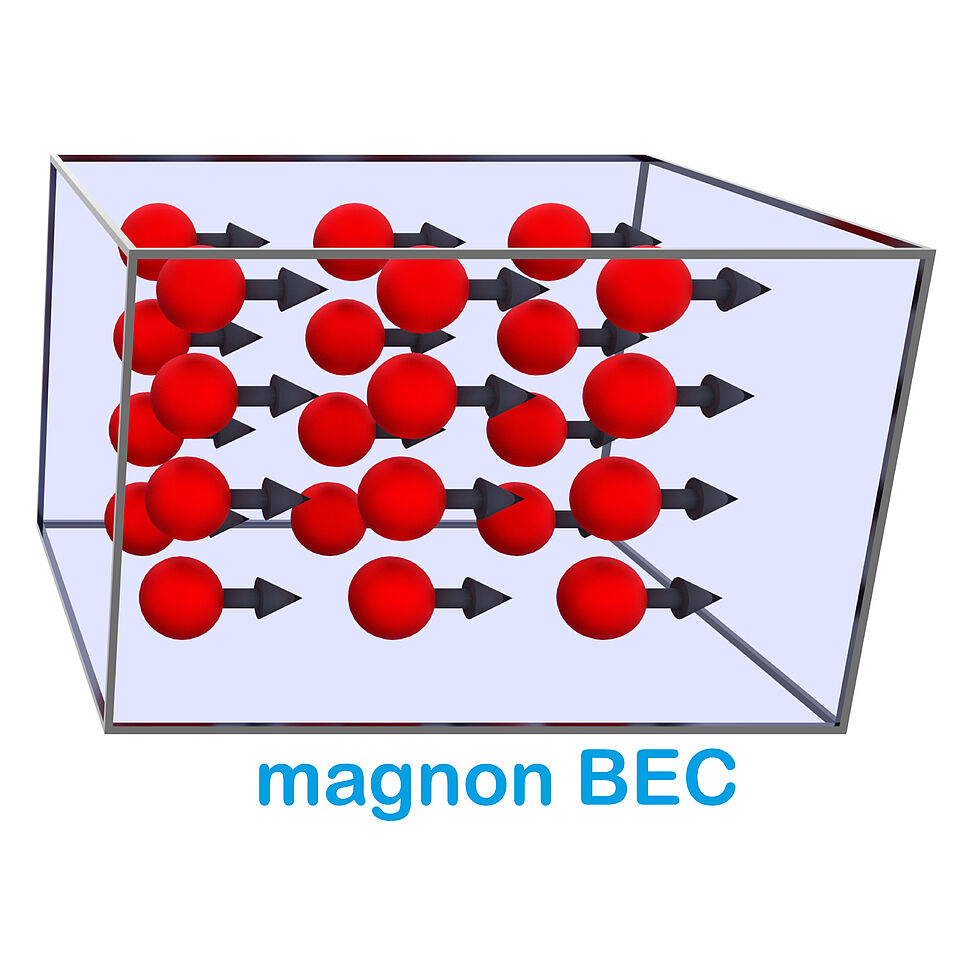Jointly with colleagues from Germany and the USA, we created the Bose-Einstein condensate through a sudden change in temperature: first heating the magnons up slowly, then rapidly cooling them down back to room temperature. As a result, the magnonic system got over-populated and formed a spontaneous magnon condensation into the same quantum state. BEC was directly detected using an optical spectroscopy technique.
The new method, published in Nature Nanotechnology is genuine to any solid-state quasi-particles in exchange with the phonon bath and paves the way for the usage of macroscopic quantum magnon states in conventional spintronics.
You can read the full press release HERE.
- Bose-Einstein condensation of quasi-particles by rapid cooling
M. Schneider, T. Brächer, D. Breitbach, V. Lauer, P. Pirro, D. A. Bozhko, H. Yu. Musiienko-Shmarova, B. Heinz, Q. Wang, T. Meyer, F. Heussner, S. Keller, E. Th. Papaioannou, B. Lägel, T. Löber, C. Dubs, A. N. Slavin, V. S. Tiberkevich, A. A. Serga, B. Hillebrands, and A. V. Chumak
Nat. Nanotechnol. 15, 457–461(2020)

